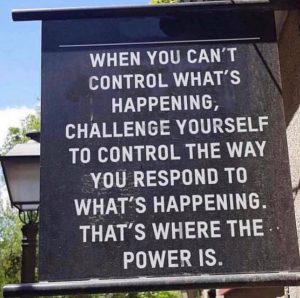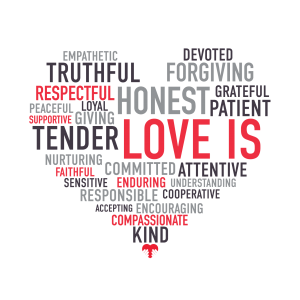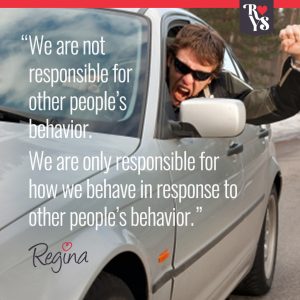
My children are going to the dogs.
I don’t know about your part of the country, but in the South it is the “in thing” to advertise a child’s good citizenship in school on the family automobile. When Justin and Sara, Miles and Deborah make the list, they rush home, bumper stickers in hand, to assault their parents with the good news.
The other day, while I was reading about hundreds of the latest bumper-sticker honorees, Milo, my biggest dog and the one tardiest to anything but a meal, looked at me with an expression that clearly asked, Why don’t you have a sticker announcing my greatest accomplishment?
I began to laugh, and then stopped.
Then laughed again, and stopped.
He was serious. You know the serious look of a dog in thought. Direct eye contact — the I-can-take-down-a-cockroach-in-total-silence-if-I-want-to-so-you’d-better-listen-with-interest-and-respond-appropriately look.
“‘My Dog Does Not Pee on the Carpet’ does not flow off people’s lips quite the same as ‘My Child is an Outstanding Student at Bluff Park Elementary,’” I said, snickering.
I disagree, he said inside my head, growling belligerently — obviously hurt by my lack of support.
You think a human can hold it all day? We’re talking straight 10–hour shifts, minimum. You leave at 7:30 a.m. and return at 5:30 p.m., he said, thrusting a paw toward the radio and the faint orange glow of the clock.
I’d like to see Johnny hold it 10 hours, he barked. Then he turned his back and looked out the window, pouting.
Poor guy. He had a point. I am proud to return home each day to a dry carpet, an intact sofa, and would–be ne’er-do-wells at bay.
As you can tell, I have dog children. One of the benefits of having dogs for children is you have an instant entourage of adoring fans regardless of the time, date, or condition of the house or your hair, breath, skin, nails, face, diet, or mood. Unconditional love — truly.
“Is that a zit that has attached itself to your nose?” a voice asks with blunt nonchalance.
The last one of my dogs to think anything so brazen was Charles. He was genuinely concerned that the tightness of my jeans would adversely effect the circulation in my lower body.
Dogs are honest. Hey, what do they have to lose? To punish the directness of a dog would be to refuse one of the greatest gifts they give humans.
Anyway, how would you punish their directness — by withholding treats? Then how in the world would you deal with the constant whining and the I’ve-got-to-have-a-cookie-right-this-very-instant-or-I’m-going-to-faint looks?
My dogs have perfected the look. They have also perfected their human-manipulation skills. Experts note communicating with our pets — and people, for that matter — involves both nonverbal and verbal interaction. Just the other day my own mate growled, grunted, and resorted to loud yapping before I passed the cookies.
This form of communication does have benefits, especially when someone representing the newest long-distance carrier calls with the latest incentive to switch.
“How much is your current monthly long distance bill?” he or she says. “I personally guarantee our plan will save you.”
“Ruff, bark, yap, yap, snort,” I reply.
“Excuse me?” a shocked voice responds.
“Yap, yap, yap, bark, snort.”
Click.
Works every time, and is more polite than hanging up on someone doing a job.
My dogs’ communication skills are highly refined. They know exactly what they are saying with their thoughts.
The other evening I was watching a documentary on Egypt. Suddenly I had an overwhelming desire to leave the comfort of the couch, go to the kitchen, and get . . . dog cookies. I wasn’t hungry. And when I am, even the Three Dog Bakery Scotty Biscotti that smell like Grandmother’s special cinnamon cookies aren’t on my snack list.
I have yet to determine which of my dogs is most talented at invading my mind. I suspect it is Charles. His observance of my tight pants gives away the breadth of his abilities.
Lucky and Zoey are neck and neck for second. Milo is dead last, since most often he is satisfied getting treats and other basic needs the old fashioned way — blatant, shameless begging.
In addition to treats, my dogs get other things they want through the subtle manipulation of my mind. Often I feel overwhelmed by doggie psychic energy, although I’m not always aware of the particular source of my mental agitation. When two, three, or all four have the same thing on their minds at once, I begin to itch.
Most often one lone dog talks silently to me, forcing me to do his or her bidding. Got to go out now. I’ve waited until I’m bursting! Anyone listening? Get up, now. Open the back door, now. Don’t wait another second. You must do this, now! To look at Charles peacefully resting on the sofa, paws thrust skyward, I do not believe the urgency of his need.
Hey, human! Look over here, his little doggie mind screams at me. Charles flops lazily onto his side and opens his eyelids a slit. He’s a water dog mix with two eyelids on each eye. One is soft and furry. The other is a blood-red transparent thing he uses for the sole purpose of grossing out his human. That was the lid with which he chose to spy on me at this very moment.
See, my legs are crossed, my eyes are bulging. Hello, is anybody in there? he thinks, with his eyes opened a bit more and head thrown casually back in my direction. As if posing for famed dog photographer William Wegman, he looks cute, not like a pup experiencing imminent bladder explosion.
Unaware, I shift in my seat. He believes his thoughts have finally made contact. He leaps off the sofa, runs to the door, and begins circling, while keeping his eyes glued to my every move.
“Why didn’t you let me know you had to go out?” I ask, opening the door.
I’ve been telling you for the past five minutes, he says to me over his shoulder as he searches for the least urine-tortured bush upon which to relieve himself.
“I didn’t hear you,” I respond.
You’ve really got to improve your skills, he quips, satisfied in having manipulated me once more with his superior telepathic abilities.
Frustrated by my lack of extrasensory communication skills, my dogs often resort to less subtle, more physical methods of expressing themselves.
The other day I was vacuuming, carefully avoiding the minefield of toys belonging to my three-month-old puppy, Zoey, when she threw herself on me.
“Well, hello sweetie,” I cooed. “What a cute little angel wanting a hug. Is the big bad vacuum scaring my little darling?” I asked, bending down to pet her.
“Let me finish vacuuming, my precious.” I gave her a final pat and gently pushed her down.
Finishing the living room, I moved to the kitchen with Zoey hot on my heels. I had barely plugged the vacuum in when she again threw herself on me. “What is it, little Zoeilla?” I asked.
With ears back flat against her head, she danced in front of me, demanding my attention. “We’ll play in a minute when I’m finished here,” I assured her.
For the next ten minutes I vacuumed, while she danced, threw herself on me, and was, I thought, irresistibly adorable.
I moved the vacuum to the bathroom and was about to begin there when Zoey came flying into the room. I plugged in the cord and was about to give her another hug when a human voice came from the direction of the bathtub.
“She’s teaching you a lesson,” my partner said flatly.
“What lesson?” I smugly volleyed back.
“Zoey is trying to teach you a lesson,” my partner shared again, more patronizingly.
“Yea, right,” I quipped. And then I got it.
Zoey was finding relief in the middle of the bathroom floor. Lost in complete bliss, she was smiling the smile of comfort, the kind we smile with a mug of hot chocolate on a cold snowy day.
I stared in disbelief. She was in heaven. How could I scold her for going in the house? She had spent the past twenty minutes trying to communicate. Unlike Charles, Zoey had literally thrown herself at me to get my attention. She had tried everything she knew to make contact, and I had been oblivious.
Often subtle, many times overt, at least dogs attempt to communicate with us. Making successful contact requires humans to stretch the boundaries of their imagination to accept that dogs really can talk — if still at too sophisticated a level for our hearing.
Got to go now!
Please, please, please don’t make me spoil my record.
I want that bumper sticker! Milo thought as he lifted a threatening leg. I leapt to my feet, stumbled over Zoey, the vacuum, and the rug, and raced to open the door. I stubbed my toe. Hopping up and down in anguish, mumbling under my breath, I let him out — in time.
Thanks. He acknowledged my efforts with a smile. You know the smile of a dog — a tight-lipped gesture, a silent snicker that acknowledges the disruption of your life because he wanted to sniff around the yard . . . for chipmunks.












